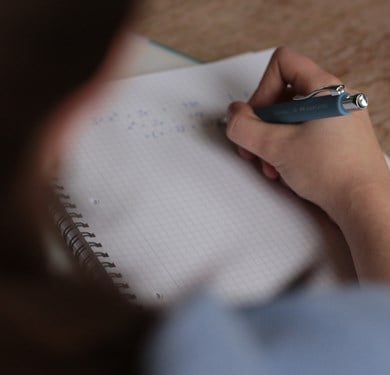Normally, spring means exam season. But, for the second year running, traditional exams are not taking place. Teachers and students are preparing for alternative assessments. We spoke to teachers about their experience, as well as Steve Kenny, AQA’s Head of Curriculum for Computer Science, for tips and advice.
26 April 2021
Exams 2021 - Preparing for this year's alternative assessments

Year 11 and Year 13 have lost much more face-to-face teaching that the cohorts last year, Whereas last year the groups lost the very last few weeks of the course and the prospect of exams, the current Y11/Y13 have been away from face-to-face teaching from March-June last year and Jan-March this year. “Then they’re facing in-school mini-exams to determine their grade, albeit with the safety net of their teachers being able to take account of skill-deficits in certain areas. My impression is that they are showing significant strength and resilience, but we can’t underestimate the effect this lack of certainty and sudden change will have on these year groups.
However, Matt observed that for Computer Science teachers, and their students, have been well placed to face the challenges of learning through lockdown.
“For many Computer Science teachers, the transition to online-learning was fairly smooth, given the extensive use of technologies like OneNote / Teams used normally in the classroom, and the self-selected students who choose to study CS, tend to take on new technological challenges comparatively easily.
“We have been impressed at how well our students have coped, and how little “deficit” there appears to be in their learning. In fact, many report feeling that they are more able to “sit down and study” now than they were before.
“In Computer Science, the lack of moment-by-moment support, especially in applied programming, has been a major limitation and we have had to apply some sticking-plasters to students’ confidence in this aspect. That said, having explored programming tools like DotNetFiddle.net, where students can code via the web and post-back to the teacher a live-link to their work for diagnostic help has been so useful we are using this in the classroom face-to-face. There are many silver-linings to the recent pandemic and we are doing things in different ways as a result.”
Steve Kenny joined CAS Coventry Mixed Community’s meeting last week for a session on AQA and Teacher Assessed Grades for KS4.
Steve emphasised the wide variety of teaching and learning differentials among students, schools and teachers, including the amount of classroom time and access to online learning each student has had. He said:
“All exam boards are taking the same approach, that students should only be assessed on the content they have been taught. It’s about using the evidence of performance from throughout the course of study.
“Teachers should consider the full two years and a broad range of evidence to determine the Teacher Assessed Grades. The key is using their professional judgement. You have been in the classroom with your students, as well as taught online, and you know your students.
“What exam boards are doing is making sure we provide enough support to ensure grades are consistent across the cohort.”
For news and support on changes for 2021, visit AQA’s website.
- “My students are just positive and want to get the best grade they can.
- “Some are happy because they don’t like exams and are keen to make sure they do well.
- “There has been a lot more work for teachers and it has been stressful.”
- “Motivating those students who are less engaged during the year but tend to ‘pull it out of the bag’ with an exam has been challenging.”
- “There are one or two students who, if they were put in a position of facing an exam paper, would be motivated. When the pressure of an exam is not there, they just don’t put the energy into it.”







